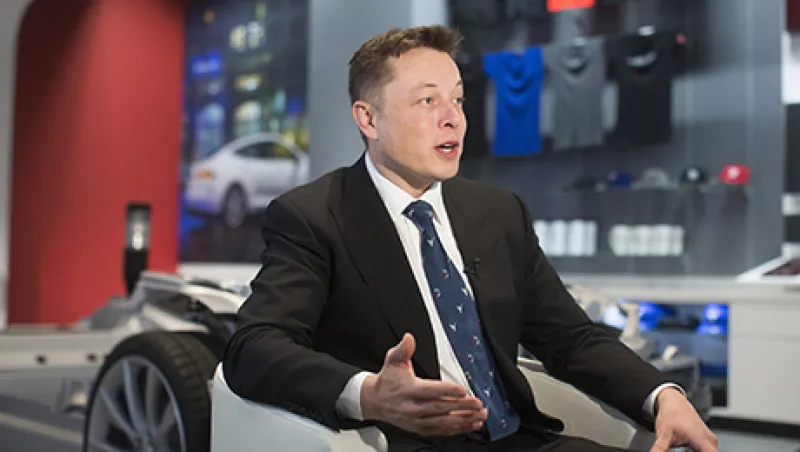
Elon Musk, billionaire, co-founder and chief executive officer of Tesla Motors Inc., speaks during an interview inside the Tesla store at Westfield Stratford City retail complex in London, U.K., on Thursday, Oct. 24, 2013. Tesla, the electric-car maker led by Musk, had its first quarterly profits this year with a boost from selling California pollution credits. Photographer: Simon Dawson/Bloomberg *** Local Caption *** Elon Musk
Simon Dawson/Bloomberg

